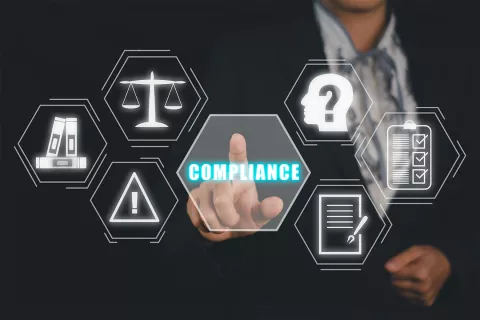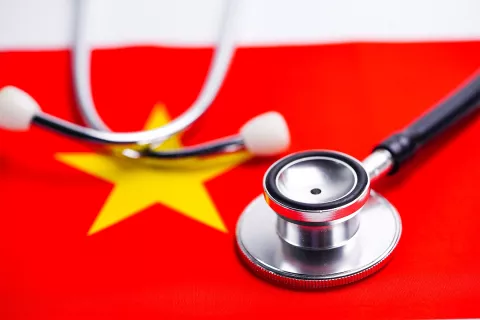
As stated in the European Union Medical Devices Regulations (EU MDR) 2017/745, clinical investigation, is “any systematic investigation involving one or more human subjects, undertaken to assess the safety or performance of a device” The entire purpose of clinical investigations is to demonstrate that medical devices are safe and effective when used for their intended purpose.
Article 62, 74, and 82 of the EU MDR covers the different parts of the clinical investigations for medical devices. Now, the very first step by the manufacturers will be to establish the purpose of carrying out the investigation – is it being conducted as a part of the conformity assessment or for the devices that bear the CE mark? Article 62 gives details on the requirements to be obliged by the manufacturer for clinical investigation of the medical device, which is further to be utilized as clinical evidence for the conformity of the device. Article 74 lays out the requirements for the medical device’s clinical investigation bearing the CE mark, and Article 82 provides requirements for the type of clinical investigation which does not get covered under Article 62. Clinical investigations should be in line with well-established international guidance in this field, such as the international standard ISO 14155:2020, “Clinical investigation of medical devices for human subjects — Good clinical practice”.
In this article, we will discuss in detail the clinical investigation requirements that are carried out as a part of Post-market Clinical follow-up (PMCF), and Article 74 provides details on the requirements and the Regulatory pathway to follow on the same. One thing to note here is knowing the difference between the PMCF investigations and other PMCF studies. For instance, the gathering of the users’ feedback or data collected over scientific screening is not considered a part of the PMCF investigation. This leads to the further question of when PMCF investigations are conducted. Generally, PMCF investigations are carried out to monitor the long-term effects of the medical devices and any probable risks or complications that may arise. It also helps to identify any potential risks associated with the use of the product and to identify any trends or patterns in adverse events associated with its use. The results of these investigations can be used to inform Regulatory decisions related to the product's safety and efficacy.
It is quite important to chalk out a plan before commencing with the clinical investigations, to establish whether the investigation is being conducted within the intended use or if there are any additional procedures that can be invasive or burdensome. In such additional procedure scenarios, the manufacturer or sponsor is required to notify the concerned Member States at least thirty (30) days prior to the commencement of the investigation via the electronic system (EUDAMED). In the case where the sponsor is uncertain of these scenarios, he/she is required to request an opinion from the concerned Member States prior to the commencement.
In case of additional procedures involved in the PMCF investigation, the sponsor is responsible for the documentation stated under ISO 14155 and Annex XV (Chapter II), which includes – the application form, investigator’s brochure, clinical investigation plan, and other information such as proof of insurance, documents to be used to obtain consent, a signed document of the European Authorised Representative (EAR) of the sponsor (wherever applicable), etc. Please note that here device modifications are not considered and will have to comply with a different set of Regulatory pathways.
In addition, if there are any substantial changes that include any changes to the clinical investigation plan which affect the scientific value of the investigation, such as changes to the study design, inclusion/exclusion criteria, endpoints, or changes to the primary/secondary objectives of the investigation, and if the changes is considered "substantial" then the Competent Authority and Ethics Committee must approve the modification before it can take effect.
Further, the PMCF investigation will only be conducted if –
- There are no negative opinions issued by the ethics committee
- The sponsor itself is established in the region, or its EAR or the contact person is established in the EU
- The vulnerable population/subject is protected in accordance with the requirements mentioned under Articles 64 to 68
- Ensuring that the anticipated benefits of the device justify the foreseeable risks and is being constantly monitored for the same
- In case, the subject is not able to give consent, his/her legally designated representative needs to provide the consent and provide further contact details, where information can be received in case of any need in accordance with Article 63
- The sponsor ensures that the protection of the rights of the subject to physical and mental integrity, privacy, and data concerning him or her have been established in accordance with Directive 95/46/EC
- The clinical investigation has been designed to minimize pain, discomfort, fear, and any other foreseeable risk for the subjects, with the risk threshold and degree of distress being detailed in the clinical investigation plan and regularly monitored throughout the duration of the study
- The responsibility of providing medical care to the subjects of the clinical investigation rests with a medical doctor who is suitably qualified, a qualified dental practitioner, or any other legally allowed person to provide relevant patient care in accordance with national regulations
- No pressure, including financial pressure, is put on the subject or their legal representatives to take part in the clinical investigation
The Member State where the investigation is being conducted or going to be conducted has grounds for the PMCF investigation not meeting the Regulatory requirements. It can revoke the investigation, suspend or terminate the ongoing investigation, and/or can ask for modification in the process of clinical investigation. In case of non-immediate action is required, the sponsor and/or investigator will be asked for their opinions which are to be delivered within a week.
At the end of a clinical investigation or in the event of a temporary halt or early termination, the sponsor must provide the following information through the electronic system to the Competent Authority(ies) and/or Ethics Committee(s) that have been involved. Please note that the sponsor must notify the Member State within fifteen (15) days in case of a halt or early termination of the clinical investigation.
- Name of the sponsor
- Name of the product
- Name and address of the manufacturer(s)
- Reference number of the clinical investigation
- Name and address of the investigator(s)
- Summary of the clinical investigation
- Reason(s) for termination or suspension
- Summary of the results
- Any reports of serious adverse events
- Any reports of unexpected adverse events
- Any reports of non-compliance with Good Clinical Practice (GCP).
- Any corrective or preventive measures taken.
- Any additional results or information related to the clinical investigation.
With respect to a serious event being reported, the sponsor is required to comply with Articles 87 to 90, and the acts adopted pursuant to Article 91 shall apply. While in case of adverse events, the sponsor shall report it as per Article 80. The manufacturers can refer to MDCG 2020-10/1 Rev 1 Safety reporting in clinical investigations of medical devices under the Regulation (EU) 2017/745 as well in this scenario.
In conclusion, clinical investigations for medical devices are an important part of the evaluation process for the safety and efficacy of the device and must be conducted according to the requirements of the EU MDR. Manufacturers and sponsors must ensure that clinical investigations are planned and conducted in accordance with the applicable regulations and that any modifications or suspensions are reported to the appropriate authorities.
For any queries on clinical investigation under EU MDR, contact Freyr today! Stay informed. Stay compliant.









